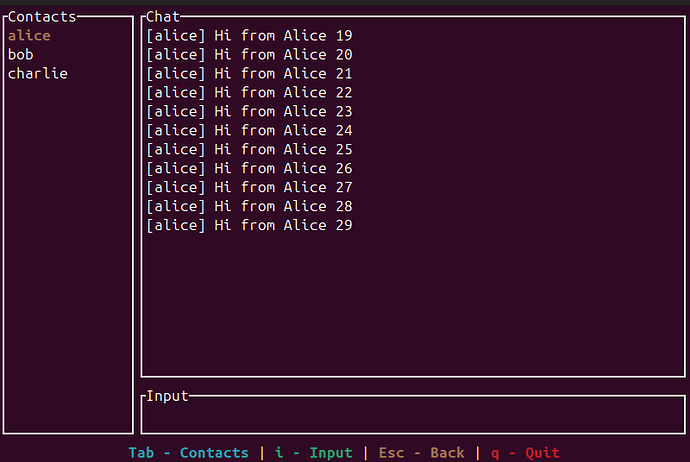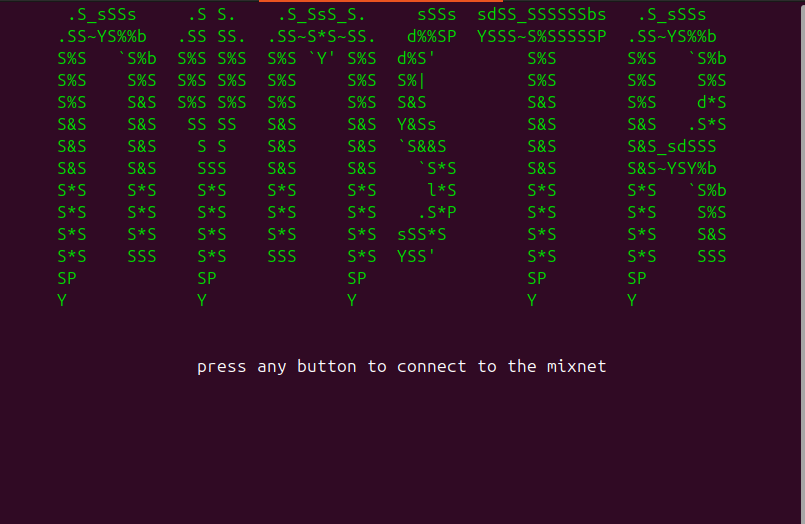Update #5 03/04/25
Python-Rust FFI for mixnet operations is fully integrated! Now you don’t need to install the nym-client binary and it should be fully cross platform! (haven’t tested on MacOS yet)
All you need is Python 3.11+ and Rust!
Not quite. There is no directory involved in secret chats. When you run the app, you initialize a nym-client which is used for all mixnet operations during that session. When starting a secret chat, client’s exchange nym addresses which allows them to route messages directly p2p instead of through the server.
Normal Chats:
Outer JSON
{
"message": "<the JSON string below>",
"recipient": SERVER_ADDRESS,
}
Encapsulated JSON string
{
"action": "send",
"content": {
"sender": "alice",
"recipient": "bob",
"body": {
"iv": "example_iv",
"ciphertext": "encrypted_data",
"tag": "example_tag"
},
"encrypted": true
},
"signature": "abc123signature"
}
Secret Chats:
Outer JSON
{
"message": "<the JSON string below>",
"recipient": RECIPIENT_ADDRESS,
}
Encapsulated JSON string
{
"action": "secretChat",
"content": {
"sender": "alice",
"body": {
"iv": "example_iv",
"ciphertext": "encrypted_data",
"tag": "example_tag"
},
"encrypted": true
},
"signature": "abc123signature"
}
Group Chats: (not yet implemented)
Outer JSON
{
"message": "<the JSON string below>",
"recipient": GROUP_ADDRESS,
}
Encapsulated JSON string
{
"action": "send",
"content": {
"epoch": 3,
"sender": "alice",
"ciphertext": "base64-ciphertext",
"nonce": "base64-nonce",
"tag": "base64-tag"
},
"signature": "abc123signature"
}
Keep me updated! Would love to work with the team on this!

